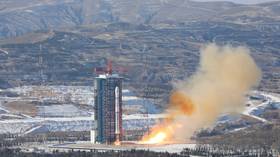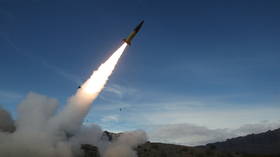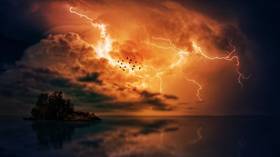China to ask ‘Questions to Heaven’ with country’s 1st mission to Mars later this year

China’s space agency has announced the title for the country’s inaugural mission to Mars. Tianwen-1, which translates roughly to “Questions to Heaven,” is expected to set off for Mars later in 2020.
The mission is to launch a Mars probe at some point later in 2020 while hoping for the trifecta of interplanetary exploration: orbiting, landing and roving all in a single mission.
The China National Space Administration (CNSA) used the country’s annual Space Day, which began in 2016 as a means of celebrating the anniversary of the successful launch of China’s first satellite, Dongfanghong-1 in 1970, as an opportunity to unite the country and have its citizens look skyward once more.
Also on rt.com Mars Perseverance rover kitted out with new wheels & brakes as mission looms (PHOTOS)The name for the country’s first Mars exploration mission derives from a 2,000-year-old poem written by Qu Yuan, one of China’s literary greats, which raises questions about the sky and stars as well as various natural phenomena and myths.
All of China's future planetary exploration missions will be named “Tianwen” to honor the country’s history of scientific innovation and exploration. An international contest to choose the name began in August 2016 and ultimately received over 36,000 applications in total.
China was the third country to put a man in space using its own rocket, joining the former Soviet Union and the US in 2003, and now aims to become a major player in space by 2030.
Also on rt.com Roscosmos vs Musk: Russian Space Agency chief & SpaceX CEO cross virtual swords on Twitter“The CNSA is willing to work together with the international community to make new and greater contributions to exploring the mysteries of the universe and promoting human welfare on the basis of equality, mutual benefit, peaceful utilization and inclusive development,” said Zhang Kejian, head of CNSA, as quoted by Xinhua.
Think your friends would be interested? Share this story!













